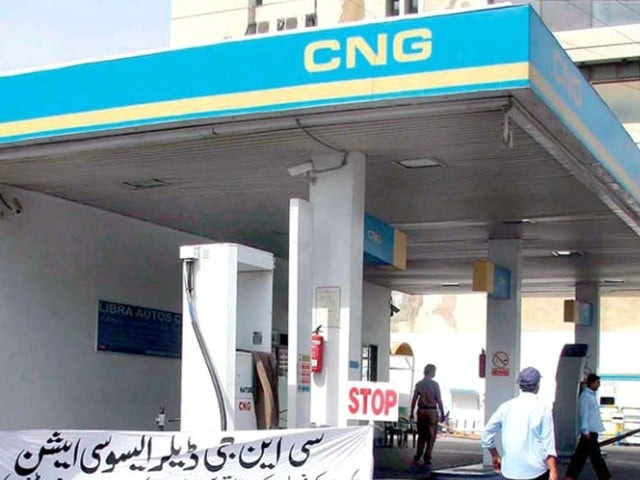CNG prices: analysing what happened after deregulation
Three months on, rates have increased but vary across the country

Three months on, rates have increased but vary across the country. PHOTO: EXPRESS
This essentially meant that as far as the retail end of the supply chain is concerned, the CNG has now entered the free market domain. Almost three months down, it should be instructive how the market (producers and consumers) has responded to this form of “unbridled capitalism”.
After deregulation: CNG price hike goes unchecked
Historically speaking, the prices of CNG were kept unchanged, uniform and fixed at Rs67.50 per kg for a long time. Thus, regardless of the cost of actual access to CNG for the retail consumer – whether the fuelling was done in the north or south across the length of the country – prices were uniform.
Interestingly, these prices also remained unchanged during the dramatic fall in the prices of its substitute – petrol, thus benefitting CNG dealers.
It should be recalled that after an initial boom in the CNG market in the previous decade, which was propelled by the availability of natural gas in the country, this market slowly dried up.
The dwindling reserves of natural gas in the country had significant repercussions for users and investors. The investors lost significant capital as the gas supply was largely curtailed. The consumers suffered as they had shifted their consumption pattern to the cheaper fuel. With this backdrop, the current government made the decision of importing LNG and converting LNG into CNG – apart from its other industrial usages.
It is with this backdrop – the unavailability of CNG (except in Khyber-Pakhtunkhwa (K-P)) and import of LNG as a substitute product – that the decision, of deregulation, needs to be examined.
Let’s look at the prices now. The increase in the CNG prices has occurred but it varies across the country. In Region 1 (K-P, Balochistan, Pothohar), the prices rose to Rs73/kg from Rs67.50 and now it is at Rs75.82, whereas in Region 2 (Sindh, Punjab), the prices rose much lesser –to Rs70-71, and now at Rs71-73. In a nutshell, prices have increased in a range of 5% to 12%.
The increase in CNG prices is not insignificant. However, it should be noted that after inclusion of LNG in the pipeline, the cost of converting into CNG has to be considered, as also expressed by the dealers association.
Secondly, when the prices are deregulated after a long and artificial suppression, there is always a spike.
That is why it is never a good idea to control prices – the government reaches its limit of absorbing the difference between the open market price and controlled price sooner or later. The sudden and unexpected rise at that point really hurts the consumer because of their spending patterns.
Another factor needs to be considered. While CNG prices are freely set up by the dealers, they are not free to pick a source. They still have to depend on the government monopoly – or the duopoly if SSGC and SNGPL are considered separately.
The government owns the distribution system completely, though the ownership on production and exploration is mixed.
CNG filling stations to set prices, sell gas in litres
Under a completely free market, the government might be a player but it should not be both a player and regulator. Under the current circumstances, the government largely defines the prices of gas, not only on account of distribution but also by imposition of taxes.
The freedom CNG dealers enjoy therefore is rather limited. Even under this limited freedom, the new prices show a healthy trend of diversification and gradualism. Now, the role of the government should really be to ensure that the business conduct of CNG dealers do not lean towards cartelisation, thus a more vigilant competition commission is needed.
The writer is founder of PRIME Institute, an independent economic policy think tank based in Islamabad
Published in The Express Tribune, March 6th, 2017.
Like Business on Facebook, follow @TribuneBiz on Twitter to stay informed and join in the conversation.



















COMMENTS
Comments are moderated and generally will be posted if they are on-topic and not abusive.
For more information, please see our Comments FAQ